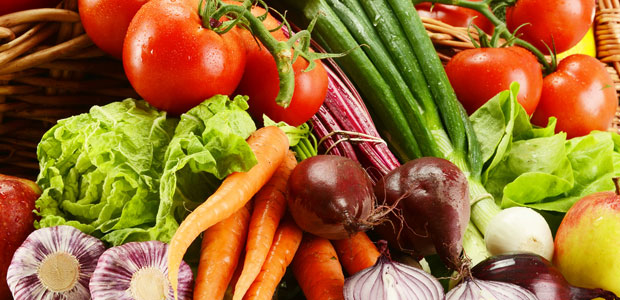Advertisement
Meatless Monday: Transitioning to a Vegan Diet
If Meatless Monday isn’t a new thing for you, and you tend to eat meatless on all days ending with “y,” then perhaps you’re ready for a new challenge … veganism! By definition, a vegan is someone who chooses not to consume any animal products or byproducts. In addition to meat and fish, vegans also … Continued

If Meatless Monday isn’t a new thing for you, and you tend to eat meatless on all days ending with “y,” then perhaps you’re ready for a new challenge … veganism!
By definition, a vegan is someone who chooses not to consume any animal products or byproducts. In addition to meat and fish, vegans also steer clear of eggs, dairy products, and even honey. Further, vegans avoid products made from or with animal products, such as silk, leather, wool, and certain makeup and other personal care products.
In today’s Meatless Monday post, we’ll share with you tips for transitioning to a vegan diet.
Dairy
With all the tried-and-true and new products in the natural health food stores today, making the switch from dairy to dairy alternatives is an easy one. Milk in particular is a no-brainer. Almond, soy, hemp, oat, and coconut are all tasty milk alternatives.
Cheese is one of those things that people get really passionate about, and five years ago a great vegan cheese product was hard to come by. Fast forward to today, however, and there are a bunch of great products on the market that have the taste and texture of the real thing. Many even melt just like real cheese—perfect for an ooey gooey pizza. Be sure to check the ingredient list when purchasing soy cheese, as some varieties contain casein, which is a milk derivative.
Vegan butter is easy to come by, and many people actually prefer the taste to regular butter. Look for one made with healthy omega oils. Vegan yogourt, on the other hand, is a bit more difficult to find; however, it is out there. Soy yogourt has been around for quite a while now, although some people don’t like the taste. If that’s you, try out almond yogourt, made from cultured almond milk.
Eggs
Scrapping eggs can seem a little intimidating, as they’re often used in cooking and baking; however, if you remember a few vegan alternatives, you’ll never have to crack another egg.
When a recipe calls for an egg, consider the following substitutions:
- 1 small banana, mashed
- 1/4 cup (60 mL) soft tofu, blended along with the wet ingredients
- 1/4 cup (60 mL) applesauce
- 2 Tbsp (30 mL) arrowroot or corn starch
- Vegan egg replacer (yep, it exists!)
When you’re just craving eggs for breakfast, consider frying up some marinated or smoked tofu and sandwiching it between a toasted English muffin and some vegan cheese. Or crumble the tofu and fry it up with chopped veggies, black beans, paprika, cayenne, and some nutritional yeast for a southwest-inspired tofu scramble.
Honey
Swap bee-made honey for a variety of natural sweeteners such as maple syrup, molasses, agave nectar, brown rice syrup, and barley malt syrup.





